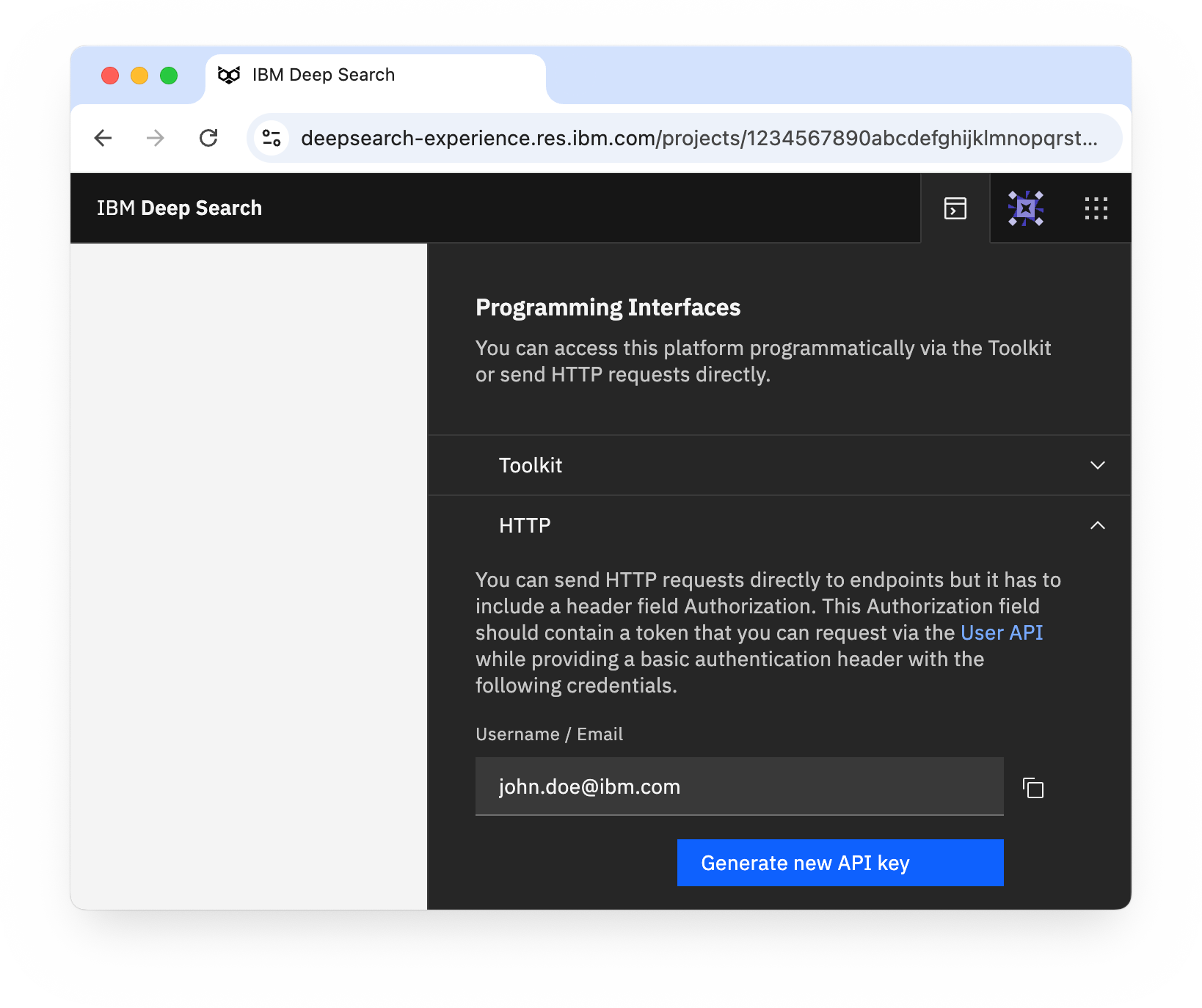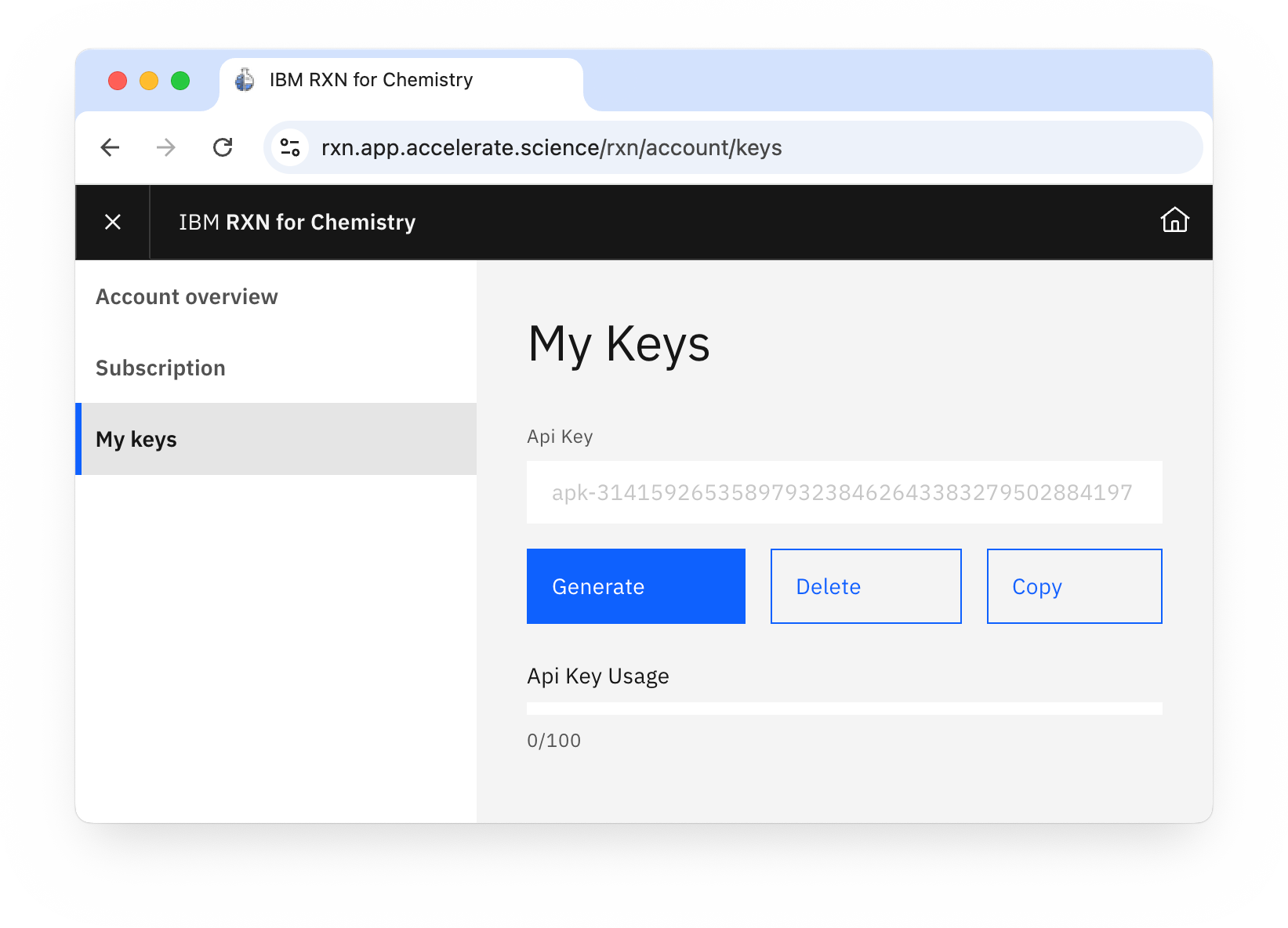openad-toolkit
OpenAD Plugins
Plugins are how molecular tools and AI models are made available to the OpenAD client. They provide drastically simplified access to a series of advanced tools, and they make it easy for your own Python applications to interface with OpenAD.
Creating your own plugins is easy if you have a basic understanding of Python.
Registration
Before you can interact with the plugins, you’ll need to register with each individual plugin.
Register with DS4SD (Deep Search)
-
First, you’ll need to generate an API key on the Deep Search website.
- Visit the Deep Search website and create an account:
deepsearch-experience.res.ibm.com - Once logged in, click the
Toolkit / APIicon in the top right hand corner, then open the HTTP section - Click the “Generate new API key” button

- Visit the Deep Search website and create an account:
-
Once inside the OpenAD client, you’ll be prompted to authenticate when activating the Deep Search (DS4SD) toolkit. When running
set context ds4sd:- Hostname: Default: https://sds.app.accelerate.science
- Email: Your email
- API_key: The DS4SD API key you obtained following the instructions above.
-
You should get a message saying you successfully logged in.
Note: Your DS4SD auth config file is saved as
~/.openad/deepsearch_api.cred. If you ever want to reset your DS4SD login information you can runset context ds4sd reset, or you can delete this file.
Register with RXN
-
First, you’ll need to generate an API key on the RXN website.
- Sign up for an RXN account at rxn.app.accelerate.science
- Obtain your API key by clicking the user profile icon in the top right hand corner and select “Account”, then select the “My keys” tab.

-
When setting the context to RXN using
set context rxnyou’ll be prompted to create a new auth configuration file:- Hostname: Default: https://rxn.app.accelerate.science
- API_key: The RXN API key you obtained following the instructions above.
- Hostname: Default: https://rxn.app.accelerate.science
-
You should get a message saying you successfully logged in.
Note: Your RXN auth config file is saved as
~/.openad/rxn_api.cred. If you ever want to reset your RXN login information you can runset context rxn reset, or you can delete this file.
Adding a Toolkit
First install the toolkit, then set the context to this toolkit.
[!IMPORTANT] When running commands from Jupyter, prepend them with
%openad
add toolkit ds4sd
set context ds4sd
add toolkit rxn
set context rxn
Sample Commands
# DS4SD
display all collections
# RXN
list rxn models
Running Bash Commands (CLI)
To run a command in bash mode, prepend it with openad and make sure to escape quotes.
openad show molecules using file \'base_molecules.sdf\'